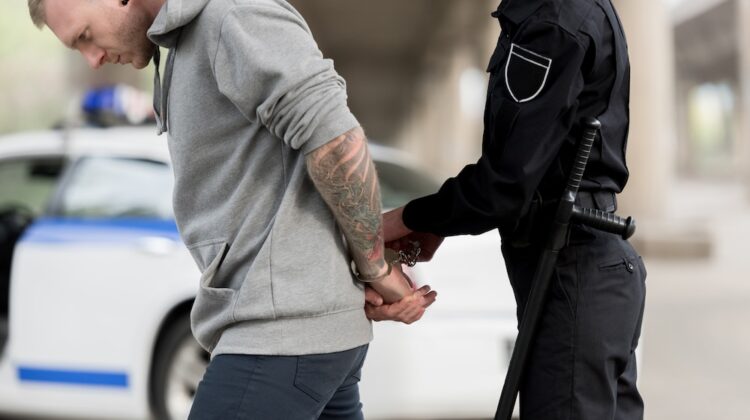
Photo by LightFieldStudios
After three years of decriminalization, Oregon restituted laws earlier this year that again criminalized personal possession of all drugs. Lawmakers are referring to it as a necessary compromise due to overdoses, homelessness, and crime plaguing Oregon, particularly in urban cities such as Portland.
Now that drugs are recriminalized, personal possession of small amounts can again result in jail time.
However, many see the recently enacted law as regressive. Commentators believe Oregon should not be overturning decriminalization laws—but instead turning to other common-sense measures to mitigate overdoses and crime.
Decriminalization in Oregon
In November 2020, Oregon voters passed a state law that stunned the country: they decriminalized all drugs, under a substance-specific threshold, for personal use. Instead of a misdemeanor, drug possession would result in a fine.
The 2020 law won by a substantial margin with nearly 56% percent of Oregonians voting for the ballot initiative, CNN reports. Drug policy advocates praised the state legislative change as a “landmark declaration.”
Initially, reception was divided. Some viewed Oregon’s decriminalization, as a welcome relief after half a century of the War on Drugs. Others viewed it as an invitation for uninhibited drug abuse and argued that it was especially untimely given the opioid epidemic, even exacerbating the crisis.
But now Oregon’s legislative experiment is nationally perceived as a failure. As a result, decriminalization’s efficacy is now under scrutiny.
In the years since the law went into effect in 2021, Oregon has experienced an increase in homelessness. According to the Oregon Capitol Chronicle, Drug addiction has also significantly increased. Oregon state health data demonstrates a major change in opioid deaths since 2019—going from 280 in 2019 to 1,416 in 2023.
Crime had steadily risen at a similar rate. However, over the last year, data shows crime in Oregon has plateaued or subtly decreased, OPB reports.
Fox News reported that some areas became “open-air markets” for the sale of drugs. While it is incontestable that Oregon is confronting serious, even existential problems related to decriminalization, it is not the only contributing factor.
Oregon’s failure has little to do with decriminalization.
Oregon’s Error
Why, if countries such as Portugal (seen as the international template for progressive drug policy) succeeded in decriminalization, did Oregon fail?
After being dubbed the “heroin capital” of Europe, Portugal decriminalized all drug use in 2001. While the move was initially met with sharp criticisms, it eventually showed unequivocal results. By 2018, the number of heroin addicts dropped from 100,000 to 25,000.
Additionally, while there was a widespread HIV crisis in Portugal in the early 2000s, HIV-related drug use similarly dropped by 90% in 2018, according to Statistica. While there has been a marginal spike in drug use in Portugal since 2018, due to the COVID-19 pandemic and reduced spending on social services, Portugal demonstrates the potential efficacy of decriminalization policies.
The answer is simple: decriminalization without corresponding social services, such as testing, addiction centers, and workforce programs, will fail. Portugal did not haphazardly decriminalize drugs; they implemented an eight-step program to address addiction across the country. Portugal incorporated plans such as testing centers, deploying experts to work with addicts on the streets, public information on drugs, and workplace programs for addicts. Oregon lacked these robust measures.
According to Politico, Oregon’s fleeting decriminalization failed to, “fund new treatment services for 18 months after the law passed,” and was unable to, “direct drug users to treatment.”
However, while Portugal had several years to cultivate results, Oregon’s decriminalization experiment only had three years.
João Goulão, the national drug coordinator for Portugal, told Politico that, “For you to be able to claim something works, scientifically, you have to let it exist, you have to collect data, have it contrasted … These things take time.”
Beyond Decriminalization
Many perceive decriminalization as an all-or-nothing legislative gesture: either drugs are decriminalized, or drugs are illegal. The truth lies beyond this false dichotomy.
Drug decriminalization does not need to entail endless permissiveness. Morgan Godvin, the founder of Beats Overdose, a foundation dedicated to harm reduction in Oregon, told the Center for Justice Innovation that, “when you’re smoking drugs in front of the grocery store and there’s a bunch of children walking by, that’s a tad different. Your own choice to use drugs is now affecting others . . . that’s something that should have been addressed.”
Consider something like alcohol. Alcohol is legal. Yet that does not mean that one can consume it in any manner. Alcohol is both permitted and regulated. There are public consumption laws, alcohol production laws, and drinking and driving laws. Even if a drug is not fully legal, a state or city can still enforce laws that regulate its use in other ways.
In Oregon, one of the primary problems that citizens noted was the public consumption of drugs. Enforcing certain laws on the public use of drugs could ameliorate this issue: possession remains decriminalized, but public drug consumption would be illegal.
Recriminalization: Obstructing Progress
Recriminalization is definitionally regressive. It does not rectify the problems with unregulated decriminalization, nor does it address the repressive effects of the drug war. Recriminalizing drugs leads to the same outcomes—mass incarceration, recidivism, addiction, and overdose fatalities.
When states like Oregon implement decriminalization legislation, it does not mean they should cease enforcing other laws, such as public use, public intoxication, and public decency (similar to how alcohol regulation functions). Instead, drugs could remain decriminalized, and police would not interfere with those who choose to ingest drugs privately. Excessive public use and generally dangerous behavior would be illegal.
Decriminalization on its own will not resolve the problems related to drug use and addiction. As psychopharmacologist Carl Hart insists, drug policy must center on “drug-checking facilities” and addressing the social conditions that engender addiction.
After a period of hope, it appears that Oregon’s failure has closed the conversation on drug decriminalization, and a non-interventionist, bodily-autonomy approach to drug consumption.



Leave a Reply